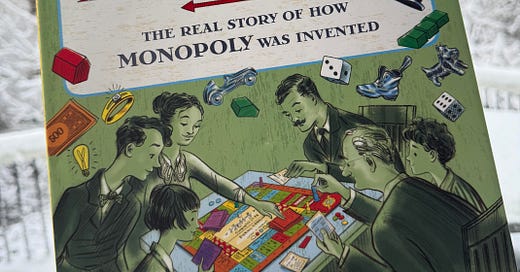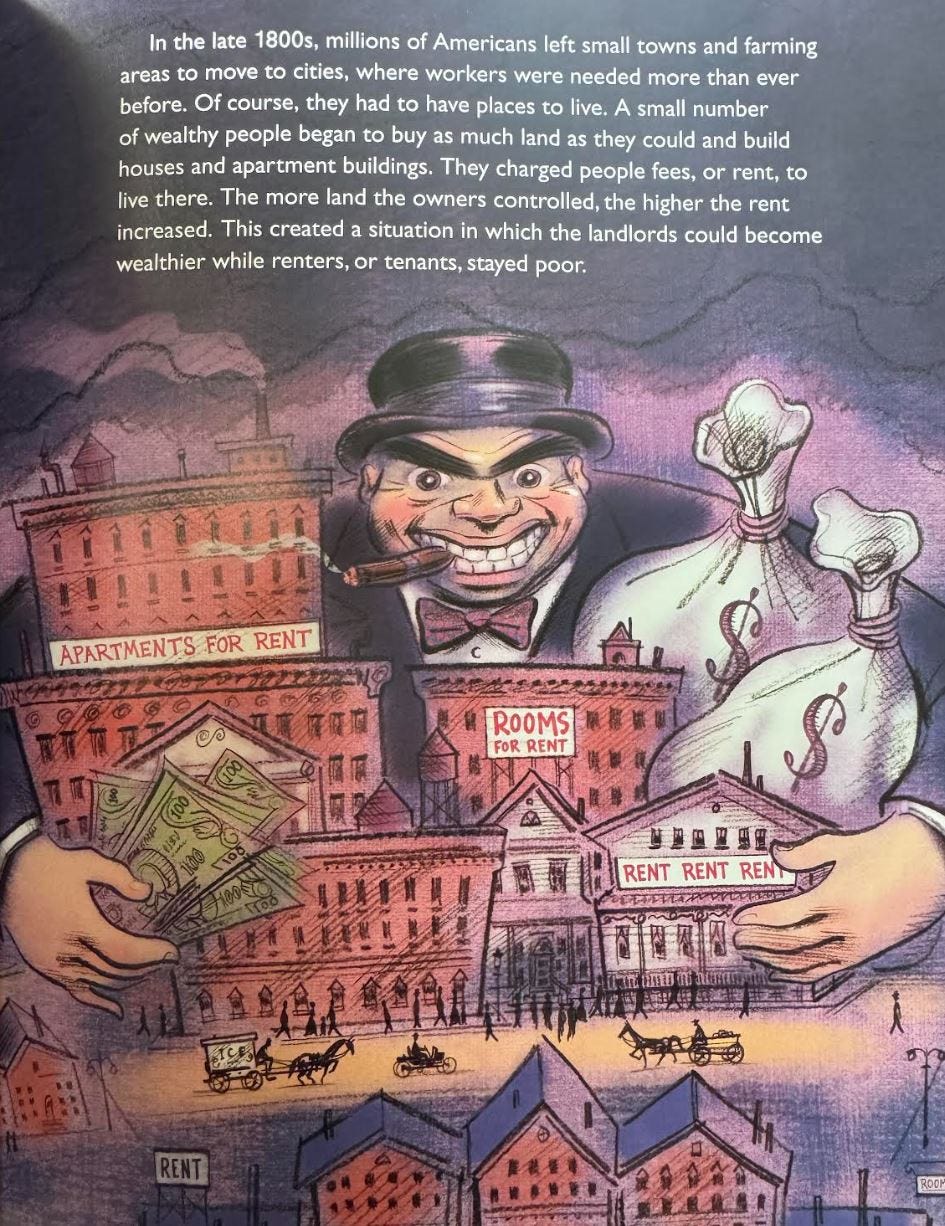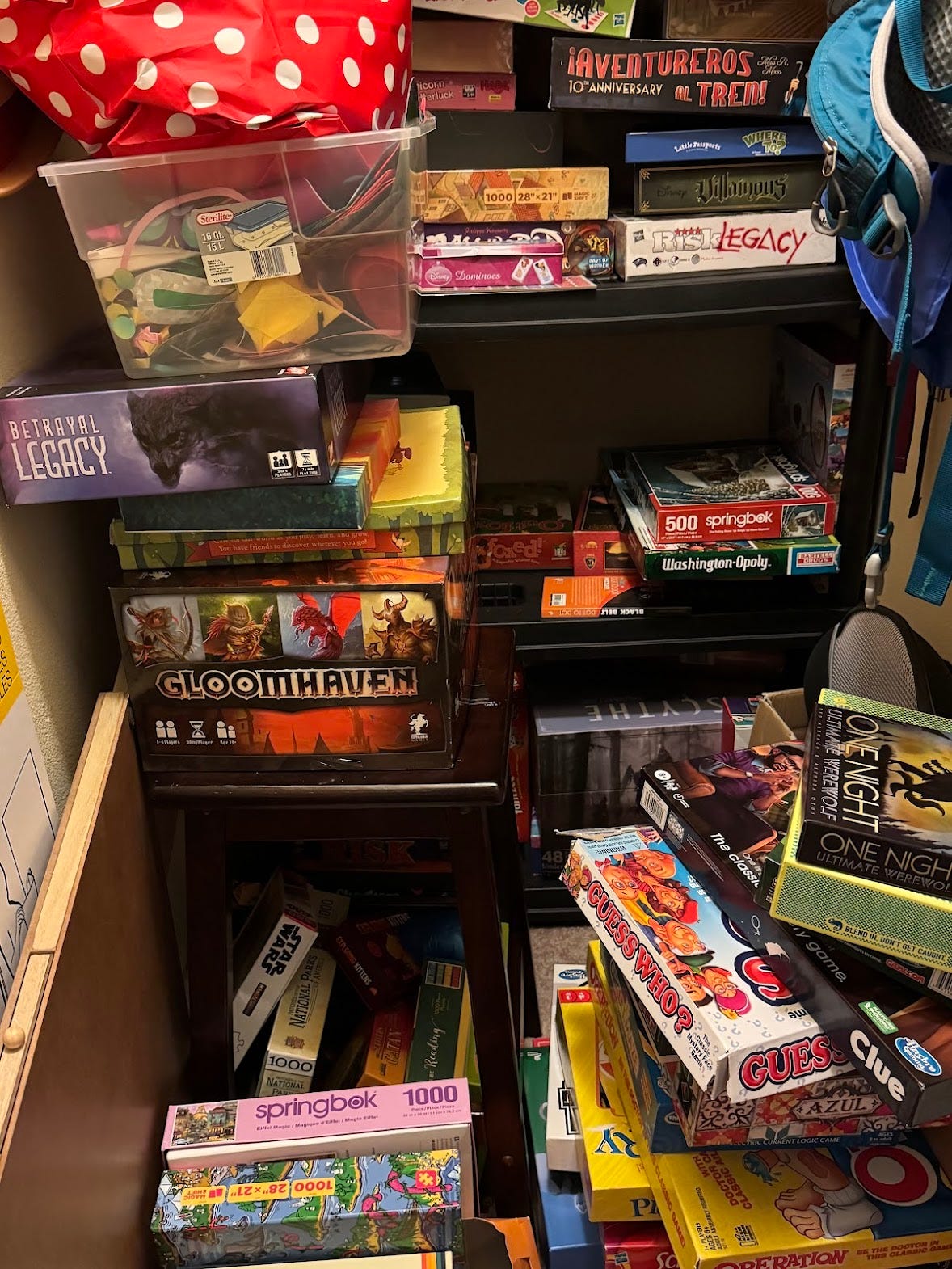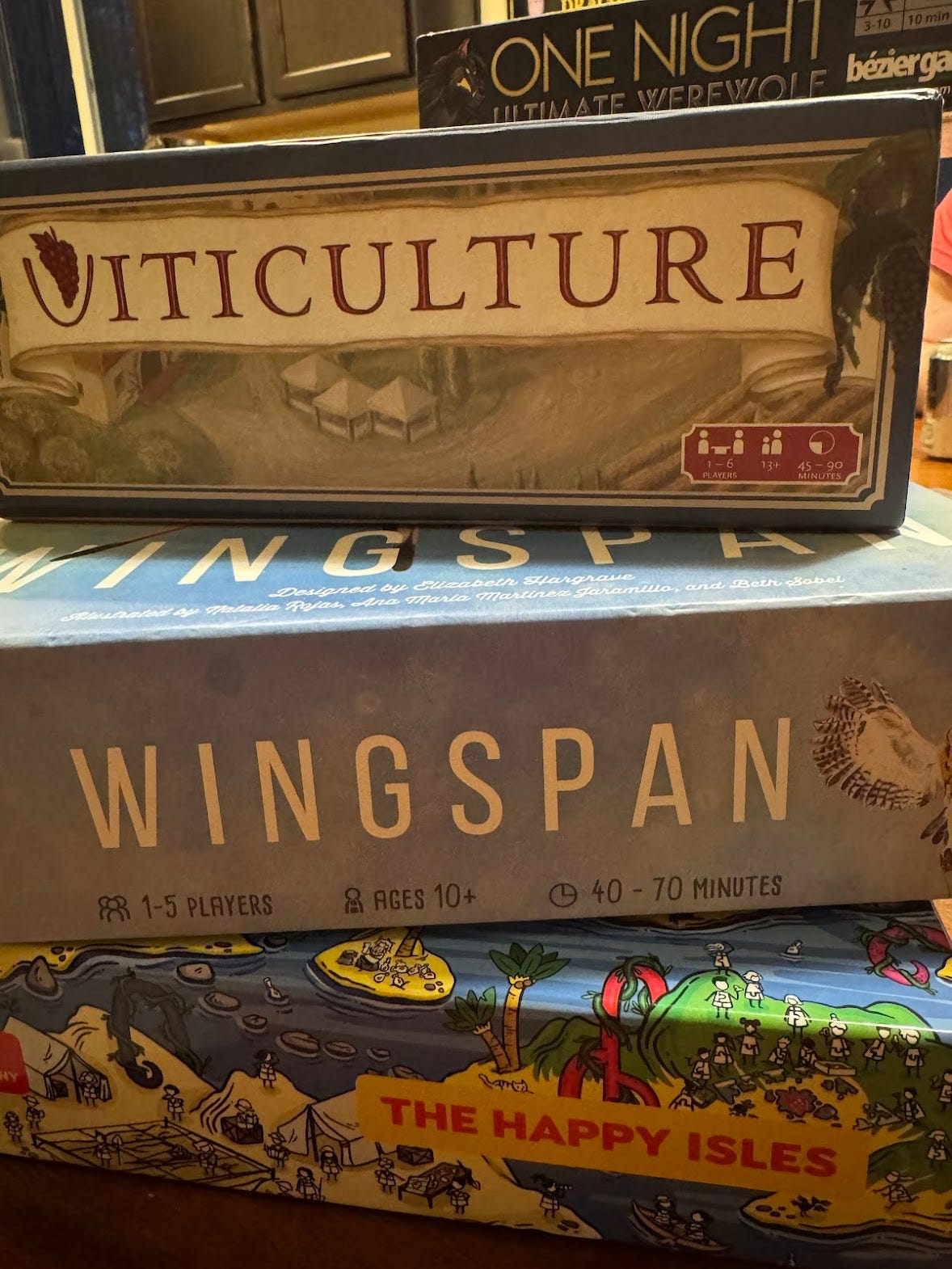A book to read: PASS GO AND COLLECT $200: THE REAL STORY OF HOW MONOPOLY WAS INVENTED by Tanya Lee Stone illustrated by Steven Salerno
In 1903, Elizabeth Magie (Lizzie) invented and patented The Landlord’s Game, to show how unjust the landlord-tenant relationship was. The game included properties with purchase prices and rent due for landing on the space. There were four railroads, a jail, a go-to-jail square, and a corner where you collected $100 of wages every time you passed by. When she renewed her patent twenty years later, Lizzie added the element of buying houses to add to properties.
In 1910, an assistant professor at the University of Pennsylvania used the game to teach his students about economics. They renamed the game MONOPOLY (probably because Professor Nearing hated unfettered wealth and believed in equality and human rights. He got fired later for being a socialist. That bit wasn’t in the book but I found it on Wikipedia) and started making their own boards and house rules. The game spread to Atlantic City where another teacher made her own board with local place names - hence St. Charles Place and Boardwalk.
Lizzie showed her game to the Parker Brothers game company, who thought it was too challenging and educational (too educational?!? All us teachers are pondering this) and decided not to buy it from her.
During the Great Depression, a guy named Charles Darrow made his own board, adding squares for Chance, Water Works, and Electric Company. He typed up rules and fashioned houses out of scrapes of wood. Then he started selling his hand-crafted game to friends. He made enough to outsource the game board creation to a printing firm and started selling to toy stores. Pretty soon it did well enough to prompt the Parker Brothers to offer Charles Darrow a contract. They bought out Lizzie for $500 and Charles Darrow was named as the inventor of Monopoly. He became a millionaire.
So that sucked for Lizzie. The end.
This is a brilliantly illustrated and written picture book. Like the board game, the book is a bit on the long side. If you read it to toddlers they will start chewing on the pages. It’s a great book for upper elementary school kids.
It is also a great book to read to 16-year-old sophomores in World History class when they are learning about the changing economics of the Industrial Revolution.
A lesson to teach: Value Lines
After reading the picture book, a cool activity to do is Value Line Ups. The Learning for Justice website does a great job explaining how to do a value line, so check that out. Here is a quick run-down:
After reading the book to the class, give students a one-sentence controversial take on the book. Here are some ideas:
I like changing rules to games or making “house rules.”
Charles Darrow is the REAL inventor of Monopoly
The government should force landlords to lower rent when the wealth gap between landlords and renters is tripled.
Designate a “value line” in the classroom. One wall is for those who agree strongly, the opposite wall for those who disagree strongly, and a space in the middle for those whose opinions lie in between. I always physically walk this line, explaining which opinions would likely stand on each space on the line. Then, have students take a stand on the line. Once standing, they can talk to the people next to them or share why they are where they are.
Sometimes I have students write a one-sentence reaction to the question on an index before they find their place on the value line, and then they can show their cards to each other and help each other get in the “right” order in line. Writing beforehand is helpful if you have kids who will just stand wherever their friends are standing.
To add a discussion element, bend the line in half so that the person at the far “disagree” space is standing in front of the person at the farthest “agree” space. Then, have everyone talk to the person in front of them.
For further ideas regarding the book check out...
The back matter! There are even some math problems in the back of the book, all ready for you to give your students.
Also, doing an illustration analysis on this page would be super fun.
A place to explore: My game closet
Because it snowed this week (!!!), I didn’t go anywhere1 and therefore this newsletter won’t go anywhere either. We’re staying at home and playing games that are cooler than Monopoly.
No disrespect to Lizzie Magie (or Charles Darrow?), but I don’t think Monopoly is a very fun game. But never fear! There are zillions of other board games that are super fun. And so many of these games live in the cupboard under my stairs.2
To be honest, my plan for this Substack was to clean and organize the cupboard so I could show before and after pictures. But alas, no cleaning happened. You would think I’d have time to clean because I had two days off school due to the aforementioned snow, but no. I was too busy reading this book.
Back to my favorite games:
Wingspan: Players draw (beautifully illustrated) bird cards and take turns to acquire food tokens that allow you to place your bird cards on your board (which has three beautifully illustrated habitats: forest, prairie, and wetlands). You get points for birds, eggs, and several other random things, which means that there are lots of different ways to win this game. Here is a book based on the illustrations from the game.
Viticulture: Like Wingspan, this is another beautifully illustrated game from Stonemaier Games. In this one, you are an owner of a vineyard in Italy and take different actions each “season” related to wine production. There are also a bunch of different ways to gather up points and win this one.
One Night Ultimate Werewolf: A fast-paced game wherein everyone is assigned a secret role and the group’s goal is to suss out the werewolf…and the werewolves need to pretend that they are just innocent villagers.
Magic puzzles: I can’t even tell you about these puzzles because they contain SPOILERS! Yes! A puzzle with a spoiler. So fun.
Happy teaching, traveling, and reading! See y’all next Sunday.
Affiliate book links in this newsletter are through Bookshop, a book-buying platform that gives independent bookstores tools to compete online and maintain their presence in local communities. If you purchase books via the links in this newsletter, you’ll be financially supporting me AND your local independent bookstore, so thank you!
Except cheer practice for one kid, the doctor’s office for another (she’s fine), the store because we ran out of cheese, and school because I didn’t get the “school is canceled” message until one minute after I got to school.
Like Harry Potter







The kids will remember the snow days and board games...love it! And no reason to waste good down time cleaning that closet...
I had no idea about the origin of monopoly, but I guess I'm not surprised about poor Lizzie. Sigh.
Have you tried Forbidden Island? I'm not a game person AT ALL, but I actually enjoy that one. It's a fun cooperative game.